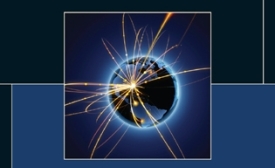rhetoric
When one looks at official Canadian government policy towards Israel and Palestine, there doesn't seem to be much that is outstanding. Beyond the language on UN resolutions that provide Canada with room to protect Israel, the basic pillars are all there: Two-state solution, anti-settlements, reference to UN resolution 194 for refugees, etc. Yet, everyone knows that the Canadian prime minister's heart and soul, and his rhetoric, are firmly on one side: With Israel.

In her review of Craig Hayden's The Rhetoric of Soft Power: Public Diplomacy in Global Contexts, CPD Summer Institute Alum Emily Metzgar notes that the book is "a well-researched discussion of soft power and its application in the name of public diplomacy." The book is one of Hayden's contributions to the academic study of public diplomacy.
The Arab Spring has diminished Iran's ability to wield soft power in the region. Instead, the momentum has shifted to Turkey, which has not been shy about stealing pages from the Iranian playbook for appealing to the Arab street.
Some early analyses of President Obama's historic address to the Muslim world in Cairo today have noted that some of Obama's professions of unity with the Muslim world merely echo words President Bush said after 9/11. The implication is that deeds, not words, matter.
The greatest lure of propaganda, for those using it to achieve total victory in the so-called war on terror, is that on surface it may appear to pose no intellectual problems about what it is and what it does. Drop leaflets on enemy territory; place pro-U.S. articles in newspapers abroad; broadcast radio programs that attack the enemy and praise American values -- and hearts and minds in hostile lands will be won over, like a salivating Pavlov dog reacting to food-related stimuli. But propaganda is not as simple as that.







